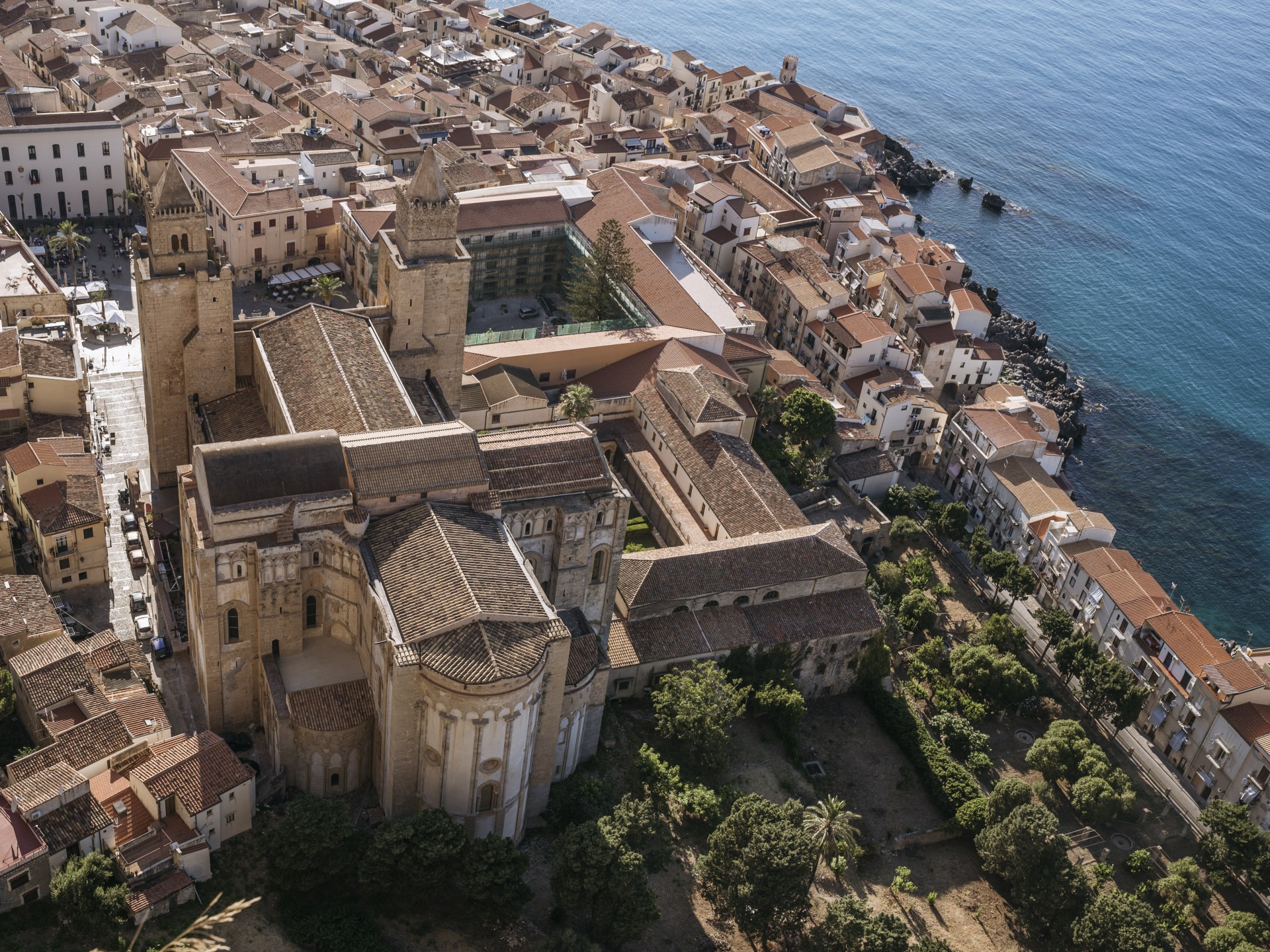Palermo...the Italian city steeped in Arab-Islamic history
On my way back from the island of Lampedusa to the airport in Palermo, the capital of Sicily, the idea of comparing the immigrants I saw on the island and their rickety boats to the ships of the legions of conquerors who came from Tunisia centuries ago did not leave me. These vicissitudes of history kept pressing on me as I flew over the Sicilian field.
I chose a taxi instead of the train to reach the city, which, according to the geographer and traveler Ibn Jubayr Al-Andalusi, was “the mother of civilization and the university among the Hasanis in diversity and freshness,” but I fell into the trap of extravagant talk from its driver, who introduced himself as Paolo. His chatter plunged me deeper into the history that I was trying to get rid of.
Paolo guesses your roots by looking at faces, so he initiates you into talking about the glories of your Arab ancestors who passed through here. He embellishes his speech with Arabic words that he mastered by sitting with many Moroccans and Tunisians in Sicilian space, assuming the role of a knowledgeable history narrator.
His words sounded like a repeated narrative with all his Arab clients as part of his professional routine, but he at least knew what most Italians, and even Arabs, missed about the major joints of Palermo’s Arab-Islamic history and its remains.
His knowledge of Arab history also extends to the islands of Pantaleria and Sardinia, and even nearby Malta and Spain. The Mediterranean islands and their coasts were a meeting place of civilizations, and the Muslim conquerors shaped an important part of their history.
Palermo is the largest city in Sicily and its capital (Shutterstock)
“Balram” - as the Arabs called it - seemed to be a beautiful city bustling with activity, resting between the mountains in the embrace of the Mediterranean Sea. Palm trees lined most of its streets, as well as orange trees that the Muslims brought with them to the island, and it seemed that they had run out of water and there was no one to pick them.
Sicily remained under the Arab-Islamic civilization for about two and a half centuries and witnessed kingdoms, emirates, conflicts, disintegration and fall, but it and its capital, Palermo, are not as prominent in the Arab-Islamic imagination as “Seville”, “Granada” or “Toledo”, and they also do not receive the same historical and cultural attention. Perhaps there is not much left there that matches those Andalusian cities in terms of antiquities and evidence.
If the destination was Spain, and with the insistence of nostalgia, the many evidences of Arab Islamic civilization in Granada and Cordoba would be among the priorities of the trip, and with the insistence of elegies, “Tariq bin Ziyad” would come, and then the tears of “Abu Abdullah al-Saghir” would stand on the outskirts of Granada, bidding farewell to the last castles of Andalusia, and his mother would address him, “Weep.” “Like women owning property that they did not protect like men.”
You must remember the beginning of Abu al-Baqa al-Randi’s poem in lamentation for Andalusia, and its beginning: “For everything, if there is a decrease... no one is tempted by a good life.” But in Palermo, few will remember its conqueror, “Asad ibn al-Furat” (759 AD-828 AD), or its most famous poet, “Ibn Hamdis al-Siqilli” (1055 AD-1133 AD), who also eulogized it by saying:
Your pride leads to humiliation and intentions... From the clear, the reunion among you throws what it throws
The people's country is not your country... nor is its neighbor, and a neighbor is like a neighbor and a friend
The Islamic conquest campaigns towards the Byzantine peninsula and its borders began in the middle of the seventh century AD, but it was the Aghlabids - the Arab rulers of Tunisia in the ninth century AD - who launched the largest and most continuous campaign from the city of Sousse towards the peninsula in the year 827 AD, led by Judge Asad bin Al-Furat, and the conquest reached its end in Year 965 AD.
Sicily remained under Arab-Islamic sovereignty from the year 827 AD to the year 1091 AD, and control over the island and parts of it passed between the Aghlabids, Fatimids, Kalbids, and Idrisids, and it was divided into 5 emirates, and Palermo remained the capital of Arab Sicily until it fell into the hands of the Normans in the year 1072 AD.
Source: Al Jazeera

